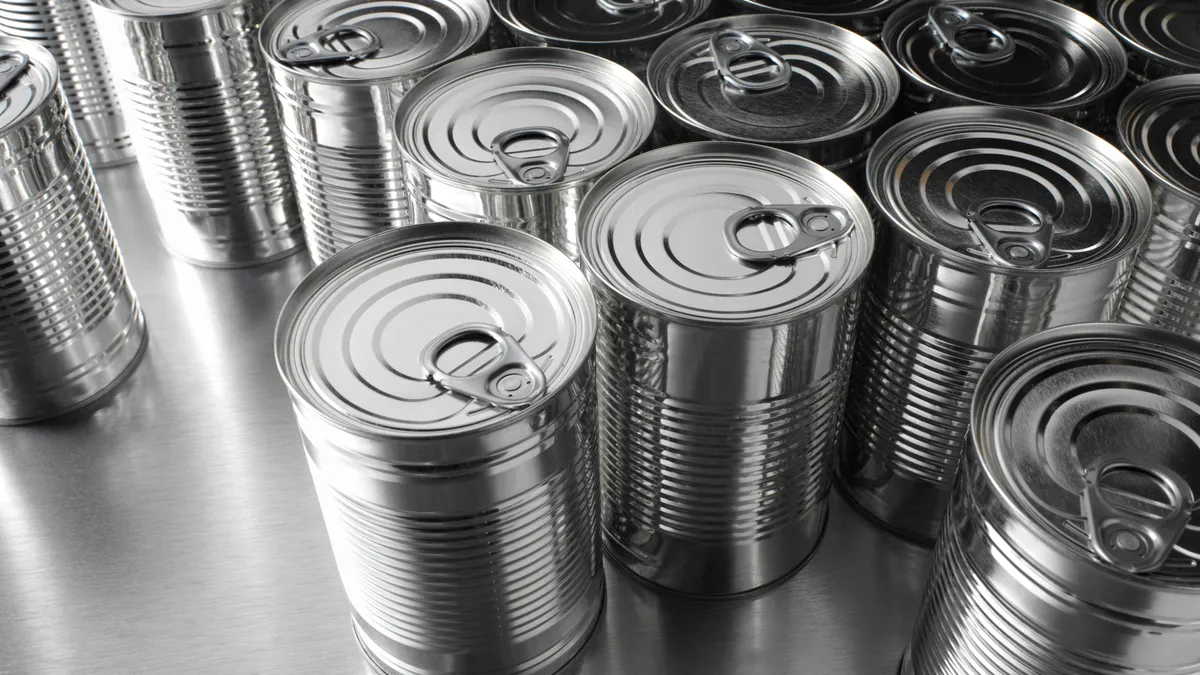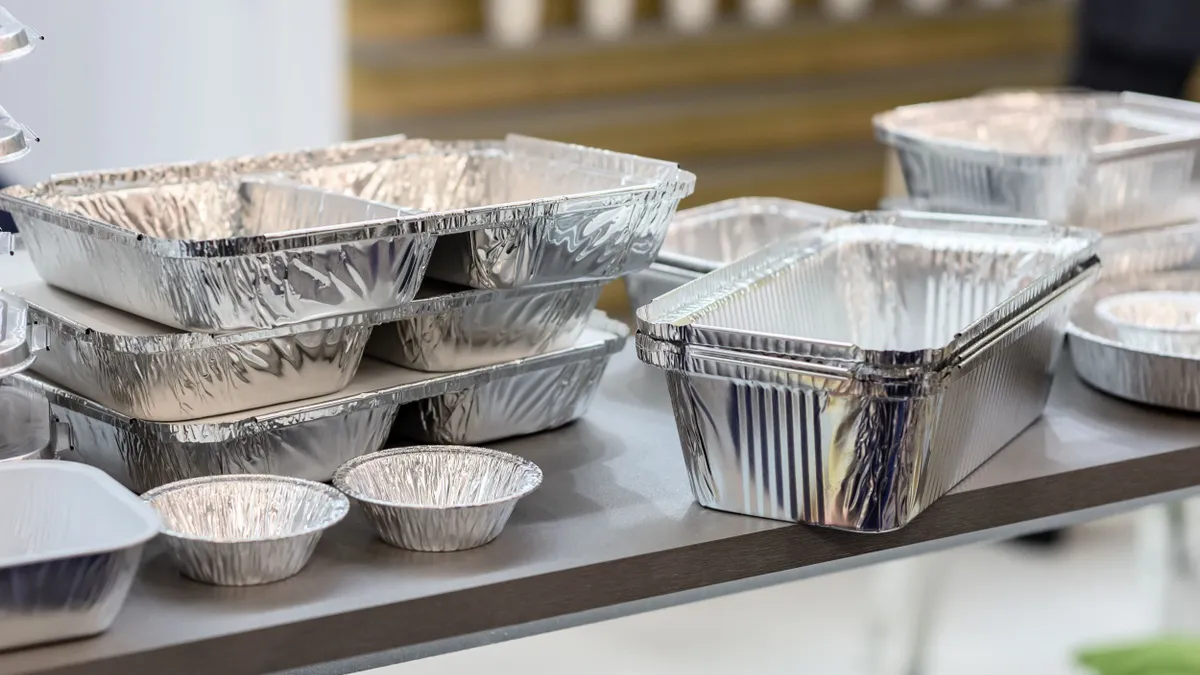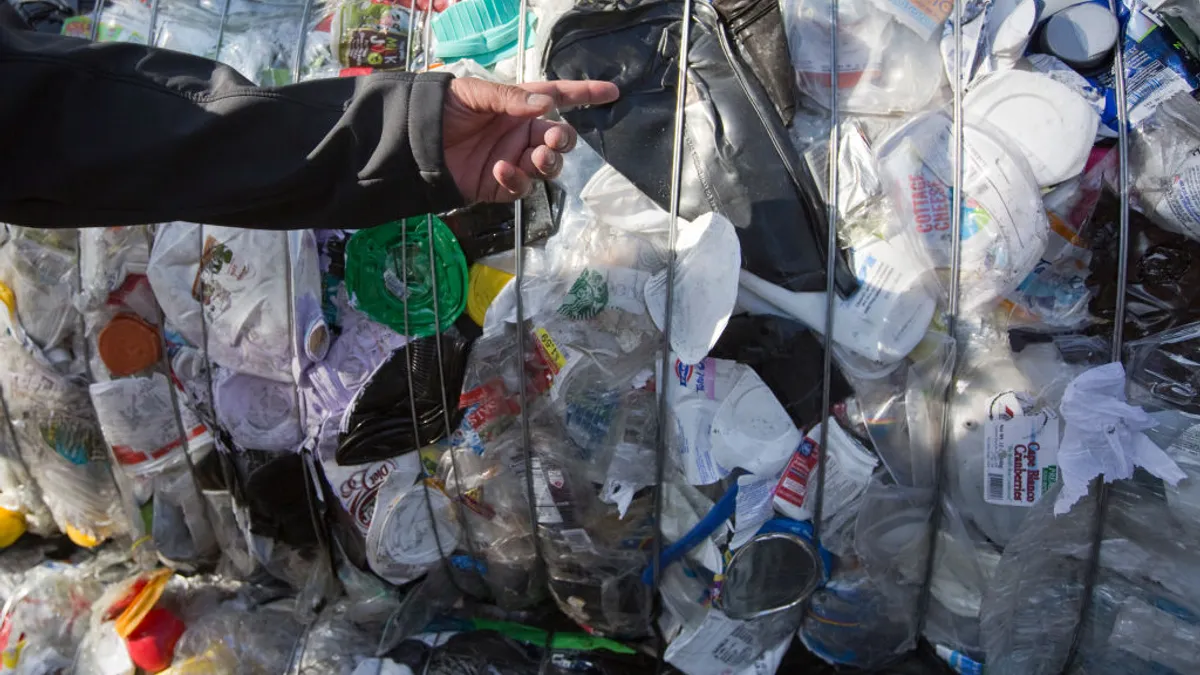The U.S. Department of Commerce proposed implementing tariffs on three countries as it determined they unfairly dumped tin mill product imports in the United States. Can manufacturers are watching for the agency’s final decision while determining possible effects to the industry.
Commerce launched an investigation into imported tin mill products — which include steel — following January antidumping and countervailing duty petitions from steelmaker Cleveland-Cliffs and the United Steelworkers union against eight countries.
The petitions requested antidumping duties on U.S. imports of tin and chromium-coated sheet steel products from Canada, China, Germany, the Netherlands, South Korea, Taiwan, Turkey and the U.K., as well as countervailing duties on products from China. They claim these countries sold products into the U.S. that are primarily used for packaging, such as food cans, at less than normal value, and say flooding the market hurt the domestic industry.
Commerce announced yesterday that it found imports from Canada, China and Germany were indeed dumped, or priced unfairly, while preliminarily finding those from South Korea, the Netherlands, Taiwan, Turkey and the U.K. were not. While Commerce named specific companies investigated in the five cleared countries, it is considering tariffs against both specifically named companies and “all others” in the countries facing tariffs. The agency proposed a 122.5% tariff on Chinese imports, 7% tariff on German imports and 5.3% tariff on Canadian imports.
Because this is a preliminary decision, no potential tariffs will be levied until Commerce announces its final decisions. Those are expected for China on Oct. 31 and the other countries around Jan. 8, 2024.
If Commerce determines that the foreign countries did indeed engage in dumping, the U.S. International Trade Commission, an independent agency, will decide whether the unfairly traded imports harmed U.S. industry.
The United Steelworkers applauded Commerce’s preliminary decision. It said this is a first step toward stabilizing the domestic market, whose pricing and workforce were harmed by the unfairly priced imports.
“Foreign dumping into the U.S. market has already cost a significant number of good, community-supporting jobs,” USW International President Tom Conway said in a statement. “If we don’t curtail this dumping now, it will eventually choke out our domestic industry, leaving us with no alternative but to rely on foreign goods. We saw how dangerous that dependence was during the pandemic, and we must be proactive now.”
The Consumer Brands Association also applauded Commerce’s preliminary decision. President and CEO David Chavern said in a statement that it is a “positive step toward protecting U.S. consumers, domestic manufacturers and their workforce.”
However, the Can Manufacturers Institute released a statement applauding Commerce for not imposing duties on the five countries, and it expressed hope that the agency’s final decision will also eliminate duties for Canada and Germany. “U.S. tin plate prices already remain the highest in the world due to the 232 tariffs, placing domestic can makers at a competitive disadvantage to foreign imports of unfilled steel cans and foreign filled food products,” President Robert Budway said in the statement.
For months, CMI has expressed concerns that new tin product tariffs would harm U.S. manufacturers and jeopardize the domestic food supply. In June, CMI commended 36 members of Congress for sending a letter to Commerce and the International Trade Commission noting that they support “strong and fair enforcement of U.S. trade remedy laws,” but the downstream impact of new tariffs on can manufacturers risks industry and consumer price increases and job losses.
In May, CMI pointed to two studies showing adverse affects from additional tin plate product tariffs, including canned food price spikes of up to 30% and said that “for every one steelmaking job that might be protected, 600 U.S. manufacturing jobs will be put at risk” — or nearly 40,000 union and non-union manufacturing jobs.
On Wednesday, the World Trade Organization also issued a ruling in an ongoing China-U.S. trade battle, this one stemming from Trump-era tariffs on steel and aluminum. A WTO dispute settlement panel found that China acted inconsistently with its WTO obligations when it imposed extra 15-25% tariffs on certain U.S. metal goods in response to the U.S.’s March 2018 Section 232 actions, which involved imposing a 25% tariff on steel imports and 10% for aluminum imports. Last year, WTO ruled that this U.S. move breached the rules. This week’s WTO decision “recommends that China bring its WTO-inconsistent measure into conformity with its obligations.”























